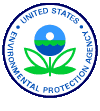SARA's Bacterial Source Tracking: How One Small Environmental Lab Developed an Impactful Molecular Biology Program
Poster-Other
Poster Presentation
Prepared by , D. Hernandez
Contact Information: hhalderman@sara-tx.org; 210-302-3671
ABSTRACT
Improving water quality through novel and effective monitoring programs is the goal of Municipalities, academic researchers, and River Authorities across the nation. Though there are many factors impairing our water bodies, bacteria has consistently been a front line offender when it comes to water quality. Current practices uphold E. coli and Enterococci monitoring. These methods are great for general monitoring yet knowing the location of bacterial hot spots is only winning half the battle. Enter, source tracking. Bacterial source tracking identifies the source of fecal contamination in a waterway and can differentiate between species. This capability is an enormously helpful resource in mitigating bacterial loads in water bodies. However, laboratories with molecular biology capabilities and experience in the environmental monitoring realm are far and few between. Incorporating these methodologies into an environmental laboratory can be expensive, complex, and overall not feasible. This presentation will outline the development of a qPCR laboratory dedicated to bacterial source tracking. It will discuss the research, setup, and optimization of methodologies our team went through to implement molecular biology into our small environmental laboratory. In addition the presentation will highlight some of the preliminary studies we have conducted throughout our watershed.
Poster-Other
Poster Presentation
Prepared by , D. Hernandez
Contact Information: hhalderman@sara-tx.org; 210-302-3671
ABSTRACT
Improving water quality through novel and effective monitoring programs is the goal of Municipalities, academic researchers, and River Authorities across the nation. Though there are many factors impairing our water bodies, bacteria has consistently been a front line offender when it comes to water quality. Current practices uphold E. coli and Enterococci monitoring. These methods are great for general monitoring yet knowing the location of bacterial hot spots is only winning half the battle. Enter, source tracking. Bacterial source tracking identifies the source of fecal contamination in a waterway and can differentiate between species. This capability is an enormously helpful resource in mitigating bacterial loads in water bodies. However, laboratories with molecular biology capabilities and experience in the environmental monitoring realm are far and few between. Incorporating these methodologies into an environmental laboratory can be expensive, complex, and overall not feasible. This presentation will outline the development of a qPCR laboratory dedicated to bacterial source tracking. It will discuss the research, setup, and optimization of methodologies our team went through to implement molecular biology into our small environmental laboratory. In addition the presentation will highlight some of the preliminary studies we have conducted throughout our watershed.


